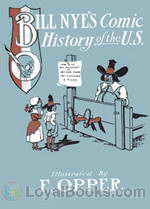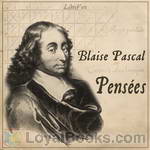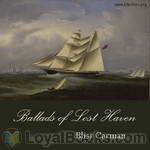|
Books Should Be Free Loyal Books Free Public Domain Audiobooks & eBook Downloads |
|
|
Books Should Be Free Loyal Books Free Public Domain Audiobooks & eBook Downloads |
|
Top Authors |
|---|
|
Book type:
Sort by:
|
By: Bertrand Russell (1872-1970) | |
|---|---|
 Our Knowledge of the External World: As a Field for Scientific Method in Philosophy
Our Knowledge of the External World: As a Field for Scientific Method in Philosophy
Bertrand Russell gave the Lowell Lectures in March and April of 1914; these lectures produced 'Our Knowledge of the External World'. Russell attempts to analyze the relationship of the crude data of our senses to the notions of physics such as space, time, and matter. Russell takes his analysis to illustrate the method of logical analysis used to such wonderful effect by thinkers in the late nineteenth-century to the notions of continuity, infinity, and the infinitesimal. These analyses effected... | |
 Mysticism and Logic and Other Essays
Mysticism and Logic and Other Essays
This anthology collects a number of fascinating strands of Bertrand Russell's thought. "Mathematics and the Metaphysicians" details the impact of the 1900 World Congress of Philosophers on Russell's development and the hope that new methods in mathematics could be applied to the solution of ancient philosophical problems. Many of the subsequent essays show the evolution of this hope as Russell worked on the foundations of mathematics and applied the new methods to the reconstruction of physical objects on the basis of sense-data, and the redefinition of matter and cause. | |
 ABC of Atoms
ABC of Atoms
A short introductory book about atoms, subatomic particles and new physics theories. | |
 ABC of Relativity
ABC of Relativity
The ABC of Relativity clearly and engagingly explains Einstein's Theory of Relativity to the layperson. It is considered to be a significant contribution to the popularization of science. Its author, Bertrand Russell, was an acclaimed British mathematician, philosopher and logician. Please note that in a few of the chapters, diagrams are included which clarify the author's discourse. The listener may wish to consult a published text to refer to these diagrams. | |
 Practice and Theory of Bolshevism
Practice and Theory of Bolshevism
This book records Bertrand Russell's impressions of the new regime after a 1920 visit to Russia following the 1917 Bolshevik Revolution, including his meetings with Lenin, Trostky, and Gorky. It includes a chapter that was authored by Dora Black, educational theorist and feminist author, and Russell's spouse. This chapter was unfortunately removed in the second edition, which was issued after Dora and Bertrand divorced. This recording is dedicated to my darling wife, Jill. Happy Hanukkah and Happy 2020! - Summary by Landon D. C. Elkind | |
By: Bertrand Sinclair (1881-1972) | |
|---|---|
 The Hidden Places
The Hidden Places
Hollister, returning home from the war physically scarred but otherwise healthy and intact, finds life difficult among society, and so chooses to roam about a bit seeking a future for himself. He eventually leads himself to a remote area in British Columbia, which begins the tale of the next phase of his life; a life which becomes far richer in totality than he would have imagined in his old unwelcoming haunts. A life among the hidden places. | |
By: Bertrand W. Sinclair (1881-1972) | |
|---|---|
 Land of Frozen Suns
Land of Frozen Suns
Bertrand W. Sinclair was known for his novels which centered in and around the rugged and frozen terrain of Montana and later, British Columbia. The Land of Frozen Suns is primarily an action and adventure novel which takes place near the northern most reaches of British Columbia at the foothills of the Rocky Mountains. Bob Sumner, after having been shanghaied onto a boat heading north up the Mississippi from his comfortable home town of St. Louis, is put to work on the "New Moon" and finds himself... | |
By: Beth Ellis (1874-1913) | |
|---|---|
 English Girl's First Impressions of Burmah
English Girl's First Impressions of Burmah
An English Girl's First Impressions of Burmah, by Beth Ellis, is a well-edited, turn-of-the-century journal documenting a young woman’s visit to Burma. The account documents her ocean voyage to Rangoon, and her stay in a small, jungle-embedded, European community in Remyo. The author, who travelled to Asia alone to visit her brother, is quick to laugh at her own exaggerated fears. She gives us a glimpse into the less-than-glamorous lives to Myanmar’s British occupiers. The book was published in 1899, just thirteen years after the conclusion of the third Anglo-Burmese war, when Britain took formal control of Myanmar and made it a province of India. | |
By: Bhakti Seva | |
|---|---|
 The Hindu Book of Astrology
The Hindu Book of Astrology
Each person is born in or under one of the twelve signs of the Zodiac and is thus influenced throughout life by the planetary conditions at their time of birth. By referring to your sign, which is indicated by your date and month of birth you can determine your natural tendencies and what is best for you to attract. No matter what one of the twelve signs of the Zodiac you are born under, you can develop into a good and successful person if you will pay strict attention to the golden truths printed in this book. (Bhakti Seva) | |
By: Bible in Basic English | |
|---|---|
 Bible (BBE) 29-37: Joel, Amos, Obadiah, Jonah, Micah, Nahum, Habakkuk, Zephaniah, Haggai
Bible (BBE) 29-37: Joel, Amos, Obadiah, Jonah, Micah, Nahum, Habakkuk, Zephaniah, Haggai
The Bible in Basic English, translated by an American committee led by S.H. Hooke, uses Basic English, a simplified English vernacular developed by linguist Charles Kay Ogden for use in teaching English to non-native speakers and as an international auxiliary language. Basic English utilizes a limited vocabulary of around 850 English words. - Summary by Mark Penfold | |
 Bible (BBE) 01-02: Genesis & Exodus
Bible (BBE) 01-02: Genesis & Exodus
The Bible in Basic English, translated by an American committee led by S.H. Hooke, uses Basic English, a simplified English vernacular developed by linguist Charles Kay Ogden for use in teaching English to non-native speakers and as an international auxiliary language. Basic English utilizes a limited vocabulary of around 850 English words. - Summary by Mark Penfold | |
 Bible (BBE) 08: Ruth
Bible (BBE) 08: Ruth
The Bible in Basic English, translated by an American committee led by S.H. Hooke, uses Basic English, a simplified English vernacular developed by linguist Charles Kay Ogden for use in teaching English to non-native speakers and as an international auxiliary language. Basic English utilizes a limited vocabulary of around 850 English words. - Summary by Mark Penfold | |
 Bible (BBE) 15: Ezra
Bible (BBE) 15: Ezra
The Bible in Basic English, translated by an American committee led by S.H. Hooke, uses Basic English, a simplified English vernacular developed by linguist Charles Kay Ogden for use in teaching English to non-native speakers and as an international auxiliary language. Basic English utilizes a limited vocabulary of around 850 English words. - Summary by Mark Penfold | |
 Bible (BBE) 22, 25, 39: Song of Solomon, Lamentations, Malachi
Bible (BBE) 22, 25, 39: Song of Solomon, Lamentations, Malachi
The Bible in Basic English, translated by an American committee led by S.H. Hooke, uses Basic English, a simplified English vernacular developed by linguist Charles Kay Ogden for use in teaching English to non-native speakers and as an international auxiliary language. Basic English utilizes a limited vocabulary of around 850 English words. - Summary by Mark Penfold | |
By: Bill Hart's Pinto Pony, William S. Hart (1864-1946) | |
|---|---|
 Told Under a White Oak Tree
Told Under a White Oak Tree
An inside look into the wild world of silent movie cowboy William S. Hart... as narrated by his horse! This is a fascinating (if fictionalized) behind-the-scenes look into the wild, action-packed world of a Hollywood cowboy and stuntman. TOLD UNDER A WHITE OAK TREE is a charming children's book that not only gives us a fanciful account of Hart's career as Hollywood's premier western hero, but also tells a rousing adventure story of his exceptional (if somewhat smart-alecky) equine companion, who strives to become as renowned a screen legend as his master... | |
By: Bill Nye | |
|---|---|
 Comic History of the United States
Comic History of the United States
For American journalist and humorist Edgar Wilson Nye who wrote under the pen name Bill Nye in the late 19th century, facts are not to be presented in their newborn, bare state. They should be properly draped and embellished before they can be presented before the public. Hence, in the Comic History of the United States published in 1894, he gives his readers the facts. But in a bid to make the historical figures more human he describes them as “people who ate and possibly drank, people who were born, flourished and died, not grave tragedians posing perpetually for their photographs... | |
 Comic History of England
Comic History of England
If you thought history was dull, dry and boring, you haven't read Bill Nye's books! He brings wit, humor, satire, irony and sheer nonsensical fun into the subject, making it both entertaining and memorable. The Comic History of England was published posthumously in 1896 after the writer's tragic and untimely death half-way through the project. Hence it remains incomplete and covers the history of the island nation only up to the Tudor period. However, beginning with Julius Caesar, the Roman invasion of Britain, the Druids and Stonehenge, this book is still a rib-tickling ride through the centuries... | |
 Bill Nye's Funniest Thoughts
Bill Nye's Funniest Thoughts
Bill Nye was a famous American humor columnist in the middle 1800's. He said "We can never be a nation of snobs so long as we are willing to poke fun at ourselves." And he did exactly that in hundreds of newspaper columns that were later collected into books. This is a selection of just 35 of the most humorous, wry and downright funny cogitations of his, written of course in the somewhat convoluted style common in the 19th century which just adds to their flavor in my opinion. The selection process was rigorous: only those that made me laugh, giggle or snort are included. | |
 Guest at the Ludlow and Other Stories
Guest at the Ludlow and Other Stories
Bill Nye was a respected journalist who also became known as a humorist. His short pieces range from a description of a visit to a friend residing in Ludlow prison, to “advice” to a son, to a wry commentary on his visits to Oakland, California. From real estate “investments” to accounts of less than ideal train passengers, Mr. Nye had his eye trained on the ironies of life, addressing them in the only sure way to preserve sanity, with humor. | |
 Remarks
Remarks
"The range of subjects treated in this book is wonderful, even to me. It is a library of universal knowledge, and the facts contained in it are different from any other facts now in use. I have carefully guarded, all the way through, against using hackneyed and moth-eaten facts. As a result, I am able to come before the people with a set of new and attractive statements, so fresh and so crisp that an unkind word would wither them in a moment." - Summary by The Author | |
 Baled Hay: A Drier Book than Walt Whitman's ''Leaves o' Grass''
Baled Hay: A Drier Book than Walt Whitman's ''Leaves o' Grass''
There can really be no excuse for this last book of trite and beautiful sayings. I do not attempt, in any way, to palliate this great wrong. I would not do so even if I had an idea what palliate meant. . . . I have taken great care to thoroughly eradicate anything that would have the appearance of poetry in this work, and there is not a thought or suggestion contained in it that would soil the most delicate fabric. Do not read it all at once, however, in order to see whether he married the girl or not. Take a little at a time, and it will cure gloom on the "similia simili-bus curanter" principle. - Summary by Bill Nye | |
By: Bjørnstjerne Bjørnson (1832-1910) | |
|---|---|
 Happy Boy
Happy Boy
"A Happy Boy" was written in 1859 and 1860. It is, in my estimation, Bjørnson's best story of peasant life. In it the author has succeeded in drawing the characters with remarkable distinctness, while his profound psychological insight, his perfectly artless simplicity of style, and his thorough sympathy with the hero and his surroundings are nowhere more apparent. This view is sustained by the great popularity of "A Happy Boy" throughout Scandinavia. (From the Preface) Bjørnstjerne Bjørnson received the Nobel Prize in Literature in 1903. | |
 Mountain Song
Mountain Song
LibriVox volunteers bring you nine recordings of "Mountain Song” by Bjørnstjerne Bjørnson. The Weekly Poem for August 31, 2014 takes us up to the mountain heights of Norway. | |
By: Blaise Pascal | |
|---|---|
 Pensées
Pensées
Pascal’s Pensées is widely considered to be a masterpiece, and a landmark in French prose. When commenting on one particular section (Thought #72), Sainte-Beuve praised it as the finest pages in the French language. Will Durant, in his 11-volume, comprehensive The Story of Civilization series, hailed it as “the most eloquent book in French prose.” In Pensées, Pascal surveys several philosophical paradoxes: infinity and nothing, faith and reason, soul and matter, death and life, meaning and vanity—seemingly arriving at no definitive conclusions besides humility, ignorance, and grace. Rolling these into one he develops Pascal’s Wager. | |
By: Blanche McManus (1870-1935) | |
|---|---|
 Our Little Hindu Cousin
Our Little Hindu Cousin
This book is one of a series that aims at describing other cultures to children in an entertaining way that honors the culture, educates the child and keeps their minds open to the possibility of other people living wonderful lives in far off places. "Our little cousins of Hindustan are charming little people, even though their manners and customs and their religion are so very different from our own. India is a big country, and there are many different races of people living within its borders, the two principal ones being the Mohammedans and the Hindus... | |
 Our Little English Cousin
Our Little English Cousin
This delightful little book is another in the "Our Little Cousin" series that offered American children insight into what their young counterparts in other lands were like; the games they played and the life they lived. | |
 Our Little English Cousin (Version 2)
Our Little English Cousin (Version 2)
Find out about the life of Edith, a little English child living at the turn of the last century. This is a fictionalised account of her daily life and also relates special events including visits to Windsor Castle, Kew Gardens and many other delightful parts of the country. The story is simply-told and highly suitable for all ages. This recording is dedicated to the Distributed Proofreaders who created the Project Gutenberg text -- thankyou! | |
By: Bliss Carman | |
|---|---|
 Ballads of Lost Haven: A Book of the Sea
Ballads of Lost Haven: A Book of the Sea
This collection of lyric poems evokes the sea in every line, from birth (A Son of the Sea) to death (Outbound). The smells, sights and sounds of the Canada's East Coast feature prominently. | |
 Nocturne: In Anjou
Nocturne: In Anjou
volunteers bring you 19 recordings of Nocturne: In Anjou by Bliss Carman and Richard Hovey. This was the Weekly Poetry project for November 10, 2019. ------ Richard Hovey collaborated with Canadian poet Bliss Carman on three volumes of "tramp" verse: Songs from Vagabondia , More Songs from Vagabondia , and Last Songs from Vagabondia , the last being published after Hovey's death. Hovey and Carman were members of the "Visionists" social circle along with F. Holland Day and Herbert Copeland, who published the "Vagabondia" series. - Summary by Wikipedia | |
 Hearse-Horse
Hearse-Horse
volunteers bring you 15 recordings of The Hearse-Horse by Bliss Carman. This was the Weekly Poetry project for October 28, 2018. ------- Bliss Carman, FRSC was a Canadian poet who lived most of his life in the United States, where he achieved international fame. He was acclaimed as Canada's poet laureate during his later years. Richard Hovey was an American poet.. He collaborated with Canadian poet Bliss Carman on three volumes of "tramp" verse: Songs from Vagabondia , More Songs from Vagabondia , and Last Songs from Vagabondia , the last being published after Hovey's death... | |
 Epilogue
Epilogue
In 1904, Canadian poet Bliss Carman published Sappho: One Hundred Lyrics, which was not just a translation of the fragments but an imaginative reconstruction of the lost poems. While of little to no scholarly value, Carman's translations brought Sappho's work to the attention of a wide readership. Our Fortnightly Poem is the Epilogue to this collection by Bliss Carman. | |
 Sappho: One Hundred Lyrics (version 2)
Sappho: One Hundred Lyrics (version 2)
Sappho lived six centuries before Christ, at a period when lyric poetry was peculiarly esteemed and cultivated at the centres of Greek life. The metropolis of this lyric realm was Mitylene of Lesbos, where, amid the myrtle groves and temples, Beauty and Love in their young warmth could fuse the most rigid forms to fluency. Here Sappho was the acknowledged queen of song. Sappho's poetry was venerated for a thousand years, but almost all has been lost to us; only two small odes and a few scintillating fragments surviving... | |